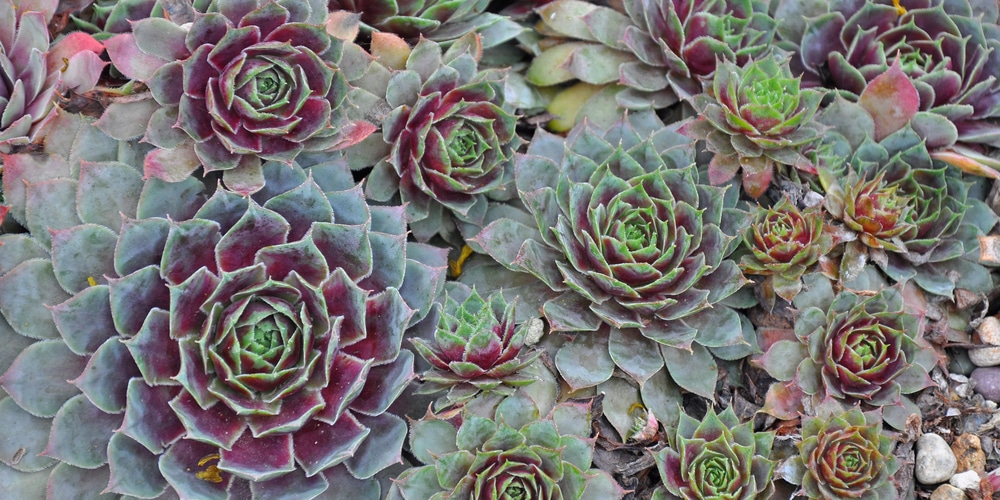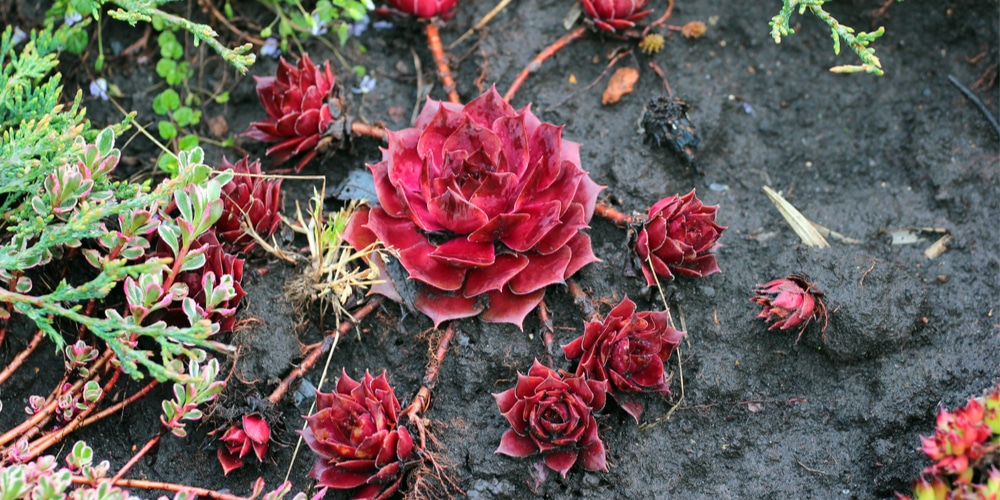Caring for a Hen and Chick Plant: Why is my Hen and Chick Plant Dying?
Hen and chicks are succulents that originate from dry desert locations. These succulents are Sempervivum but commonly have the nickname hens and chicks as the plant produces shoots that can be propagated, known as chicks.
If you have a hen and chick plant which is dying, you may be wondering what the reason is and whether you can save your plant. There are many reasons that a hen and chick plant could be dying, either due to being underwatered, overwatered, or not kept in the correct conditions.
However, it’s also important to know that hen and chicks are monocarpic plants which means that once their flowers have finished blooming, the plant will die. Let’s look at the most common reason that a hen and chick plant may be dying.
Why is my Hen and Chick Plant Dying?

Hen and Chick plants generally have a relatively short lifespan, and it’s the nature of the plants to produce ‘chick,’ which will grow when the main plant dies. These plants generally live for about three years. Before the hen plant dies, you can propagate some of the chicks so that you still have a lovely house plant.
Hen and chicks are attractive and colorful succulents that even change color due to the seasons, climate, exposure to the sun, and the plant’s maturity.
How to Care for Hen and Chicks?
Hen and chicks need special care if they are to thrive. Overwatering, underwatering, or not providing the right conditions could cause your plant to die. If any of the following aren’t correct, they may cause your plant to dye:
Climate, Temperature, and Location
Hens and Chicks are generally considered hardy succulents, which are easy to care for. They can be grown outside in warmer environments or indoors in all other climates. If you’re growing these plants outside and the weather gets too cold in the winter, this could kill the plants. It’s best to move your hen and chicks into a greenhouse during the winter and early spring to protect them from cold weather.
Sunlight
Hens and Chick plants require full sun to thrive. However, they can do well in moderate sun. These plants are more likely to look colorful and vibrant if they’re kept in full sun.
If you live in a scorching climate, the heat may be too much for your plants, especially around mid-day. It’s best to place a shade over your hens and chicks in extreme climates.
Soil
Hens and Chicks grow best in dry, sandy soil as they originally come from desert environments. Sandy soil is excellent as it creates good drainage to stop the plant from becoming waterlogged.
You can add some sand, gravel, or compost to your plant’s pot to aid with drainage. Hens and Chicks don’t need much soil to survive. They sometimes even grow in gravel or through cracks in walls or rocks. Here’s our guide to using rocks and pebbles with succulents.
Watering
Hens and Chicks are succulents which means that they don’t need much water. They can die if they are overwatered and become waterlogged. These plants can survive droughts for weeks or even months as they can store water in their stem and leaves.
It’s best to develop a good watering schedule that will meet the needs of your hen and chicks. These plants like the soak and dry watering method. This means that you can soak the soil and then leave the plants to dry out before watering them again.
You’ll also need to change the watering schedule depending on the time of year. These plants need more water during the hot summer months. Ensure that the soil can drain and dry out properly so that the plants don’t get overwatered.
Conclusion
The hen and chicks plant needs to be cared for correctly if it’s to thrive. While these plants aren’t difficult to care for, they need the correct soil type to start them off healthily and a suitable climate and watering schedule.
If your succulent has leaves that are falling off, they usually grow back as long as you can save it before it completely dies.
If your hens and chicks’ plant is dying, it’s likely either been underwatered or overwatered, or it may be coming to the end of its natural life cycle. Don’t worry if your hens and chicks are a few years old and are dying as this is natural, and you can easily propagate one or two of the ‘chicks’ to grow a new plant.
